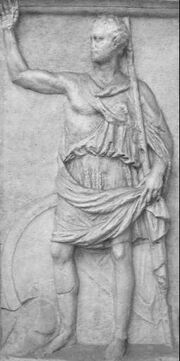
Polybius
201-120 B.C.
"Histories"
§ Helenistic period of Greece, rise of Rome as a world empire based on slave labor
§ Wikipedia writes that P.'s "primary concern... is the 53 years in which Ancient Rome became a dominant world power. This period from 220 BC to 167 BC see Rome subjugating Carthage becoming the dominant Mediterranean power". Thus, he writes “contemporary history” for his time.
§ P. lived in a period we would call "globalization". He writes: "up to this time the word's history had been, so to speak, a series of disconnected transactions, as widely separated in their origin and results as in their localities. But from this time forth History becomes a connected whole: the affairs of Italy and Libya are involved with those of Asia and Greece, and the tendency of all is to unity". It is important to notice that when the world is uniting - as in the time of Aristotle, or Polybius - we see similar "unifying" approaches to knowledge. And this justifies our taking up the problem of knowledge in general afresh today.
§ History, according to P., is a struggle of nations and individuals against "fate" or "fortune". This is the same perspective on history as we see, for example, in Sophocles' "Oedipus".
§ The concept of "fate" (similarly to God) is used for unexplainable course of events. Cause-effect type of analysis would be the next step.
§ The goal of writing history is not to entertain, but to teach how to act in similar circumstances in the future.
§ The study of history is a preparation for a political life. Hence, it is one of the best kinds of education.
§ A historian should be personally involved in the events he's describing, or interview the participants and visit the places where the events have taken place.
§ P. developed a cyclical concept of history of human society: a monarchy leads to tyranny (as in ancient Rome), after which the tyrant is deposed, and aristocracy is instituted. This aristocracy becomes an oligarchy, and hence a revolution insituting a democracy. Then, democracy is perverted, as demagogues appear, and this leads again to the rule of a single individual, either a monarchy or a tyranny, or, as we would say today, a bonapartist regime. The whole cycle starts over again. See book VI for more info.
§ P., together with the Greeks of his time, believed that the best type of constitution would be a mixed one, with elements of monarchy, aristocracy and democracy. An example of this is Rome in his time.